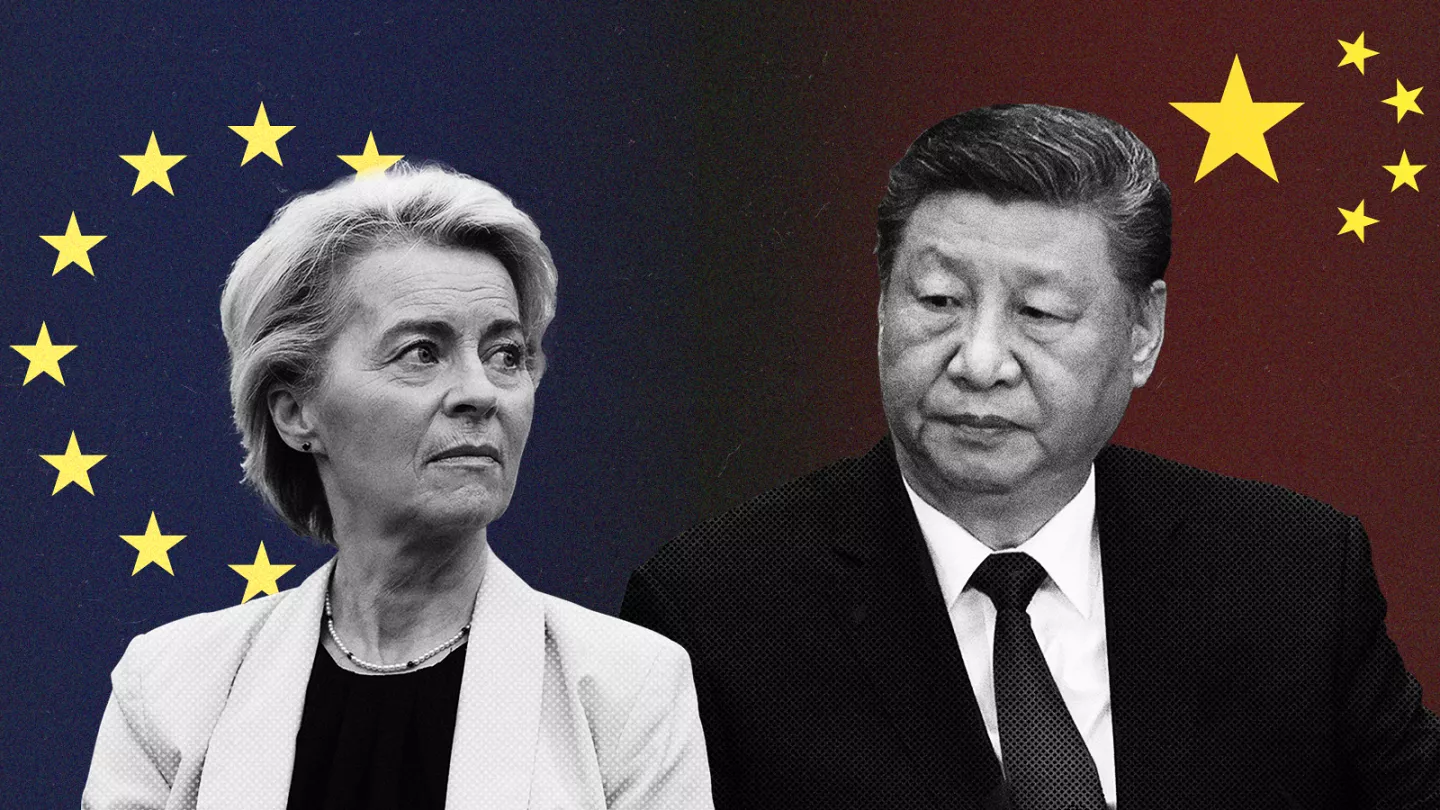The 25th EU-China Summit is happening on 24th July 2025 in Beijing, also coinciding with 50 years of diplomatic relations between China and the European Union.
EU Council President António Costa and European Commission President Ursula von der Leyen will lead the delegation, which will also meet Chinese President Xi Jinping.
Before the summit, the two sides had two preparatory sessions, the EU-China strategic dialogue on 2nd July and the high-level climate and environment dialogue on 14th July, 2025.
What’s on the agenda?
Ever since diplomatic relations were established in 1975, EU-China summits have played a key role in fostering a working partnership. The first official summit took place in 1998, laying the groundwork for future trade and economic cooperation.
The summits’ agendas have expanded with time, incorporating areas like climate change, human rights, and strategic dialogue. China has now become the second-largest trading partner of the European Union.
This year’s Agenda expands over the following:
Strategic Dialogue and Cooperation: The summit aims to increase strategic dialogue and cooperation in the new world order.
Trade and Economic Relations: The main issue is the €400 billion EU trade deficit and, in particular, China’s protectionism, subsidization of industry, and barrier-like market access.
Geopolitical Context: The summit will also include discussion on the influence of the Ukraine-Russia conflict, reevaluation of the rare earth elements critical to industry and technology, and managing the global shift of power amidst US-China strategic competition.
Climate and Environmental Dialogue: Following a climate and environment high-level dialogue on 14 July, climate cooperation is the agenda priority.
Why is this summit important?
The 2025 EU-China Summit holds significant importance as it addresses a multifaceted relationship marked by substantial economic interdependence alongside geopolitical complexity.
The economic figures show ongoing issues as the European Union posted a February 2025 trade deficit with China of about €26.1 billion, a small improvement from the €31.2 billion deficit posted in January 2025; though, this is part of a continuing trend of deficits that has been taking place over several years.
The geopolitical environment makes this relationship even more complex. The summit is set against the backdrop of larger global dynamics such as the consequences of the Russia-Ukraine conflict and the US-China trade tensions.
Read More: Beijing Urges Pragmatism as China-EU Ties Mark 50 Years
Tariffs imposed during the Donald Trump administration had disrupted global value chains and increased trade competition, thus affecting the policy of the European Union as it seeks its security alignment with the United States while maintaining crucial economic links with China.
On the question of whether the European Union is turning its attention to China or is only keeping things normal, it can be said that the summit is an important move and not necessarily a complete policy change. A few days before the summit, China chose to reduce the summit period from two days to just one and shifted it from Brussels to Beijing; indicating a more cautious approach with the bloc.
At a broader level, a structured EU-China relationship is the foundation for global economic stability because the two are key players in global trade.
EU-China in retrospect
The diplomatic relationship of the European Union and China has been both cooperative and tense due to their different political systems and alignment in different international settings. The diplomatic relations between the two were established in 1975.
The first bilateral trade treaty was signed in 1978, and later in 1985, a treaty on economic and trade cooperation was signed comprehensively, which forms the basis of the relations to date.
The EU and China have established a partnership in trade, innovation, and climate cooperation. Some important areas include collaboration in science and technology under the Horizon Europe program on science and technology, climate action aligned with the Paris Agreement, and attempts to increase market access through the Comprehensive Agreement on Investment.
Since late 2024, citizens of many EU countries, including France, Germany, Poland, Austria, and many others, can visit China on visa-free travel for up to 15 to 30 days for tourism and business, which has improved interpersonal and economic relations.
Read More: EU Not Looking to Return China’s Gesture of Lifting Sanctions From MEPs
Although Chinese citizens still need visas while traveling to EU countries, both sides want to reduce travel restrictions to strengthen future exchange.
However, the relationship between them also got tensed at times, typically at the initiative of China as a communist one-party state in an order of world affairs dominated by Western liberal democracies. The European Union has struggled with differences in views on human rights, governance, and security.
The 1989 Tiananmen Square crackdown prompted the European Union to impose an arms embargo on China, which persists and limits political and military ties. China’s initial hardline response to American presence in Europe and its opposition to NATO expansion has created distrust between the two.
Also, the Comprehensive Agreement on Investment (CAI), which started in 2013 and reached a political agreement in 2020, was postponed due to political disagreements and outside pressure.
With the summit marking fifty years of diplomacy, it shows how the EU and China continue a long-standing relationship shaped by both common goals and ongoing problems.
A passionate International Relations student with a strong interest in diplomacy, policy, and global affairs. Dedicated to contributing thoughtful analysis and research on international issues.




